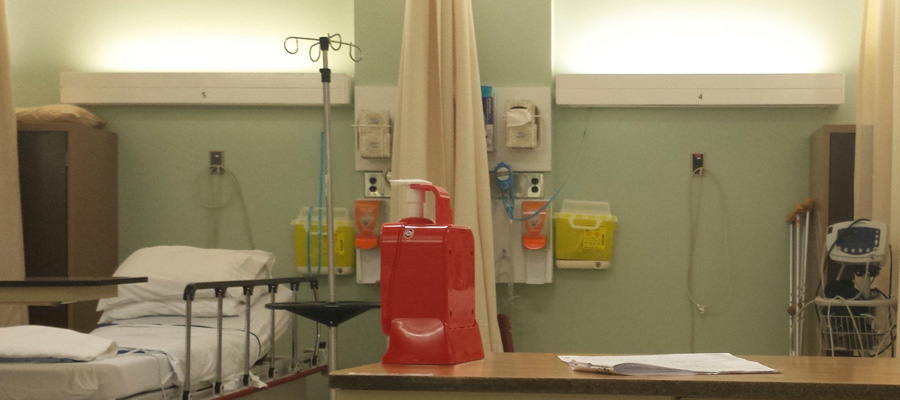Priorities and funding for health care in BC

In any provincial budget, health care is one of the biggest line items and, of course, one of our most vital public services. A lot of progress has been made on the health file in BC over the past year, but there is still more to do.
Substantial increases in funding seniors’ residential care, providing free pharmacare coverage for the lowest-income British Columbians and investing in new team-based primary care centres are among the most important recent new health care policies. Measures have also been taken to adopt best practices to reduce hip and knee surgical wait times, significantly increase public MRI capacity and service levels, and to clamp down on private clinics illegally billing patients.
The CCPA-BC welcomes this impressive pace of action, and we have identified fiscal room to make additional investments.
We have identified fiscal room to make additional investments in health care for British Columbians.
Provincial health spending as a share of our economy has been relatively steady in recent years and is projected to fall from 7.8 per cent of GDP in 2009 to 7.3 per cent by 2020 (according to the Budget 2018 First Quarterly Report).
Last year’s budget included a significant commitment to fight the opioid crisis and established the new Ministry of Mental Health and Addictions. As overdose deaths accelerate, Budget 2019 should provide any and all additional resources needed to save lives, including ensuring those suffering with addictions have access to a safe, reliable supply of opioids (as opposed to a toxic, unpredictable street supply).
Regarding services for seniors, the budget should complement the laudable new investments in seniors’ residential care staffing levels with increased access to home support services like home nursing and help with cooking and bathing.
And, capital investments are also needed to support the expansion of public and non-profit residential care, which evidence shows provide superior quality of care to private, for-profit facilities. Strong investments in the public senior care system will pay dividends by freeing up hospital beds and emergency rooms, which will have positive downstream effects on surgical wait times.
Evidence-based approaches, prevention, universality
Recent investments to increase public hip and knee surgeries, using evidence-based approaches, are a very important step to address the backlog and strengthen our public health care system. Budget 2019 should expand this approach to reduce wait times in other backlogged surgical categories.
Major new investments in primary care centres announced this year should be complemented by secure, dedicated funding for community health centres with an explicit emphasis on addressing social determinants of health through team-based health and social care. In prioritizing the social determinants of health, a comprehensive poverty reduction plan in Budget 2019 will be crucial to creating a healthier British Columbia and a more efficient use of resources by helping prevent serious health problems.
A growing body of evidence demonstrates that universal pharmacare coverage would reduce drug costs dramatically in BC. Budget 2019 should build on the enhancements of pharmacare for low-income families announced earlier this year to move towards universal coverage, which the BC government should build in collaboration with the federal government if possible, but independently if necessary.
Finally, for capital expenditures—including hospitals, residential care facilities and urgent care centres—Budget 2019 should end the use of wasteful Public Private Partnerships (P3s).
The P3 model has been repeatedly shown to increase costs while unnecessarily privatizing public infrastructure and services, frequently diminishing the quality of service across sectors including health care. As a matter of good public policy, the infrastructure of our health care system should be owned collectively by British Columbians.
In making our policy recommendations to the provincial government, we have identified those with the dual benefit of increasing quality of care and helping to contain health care costs. In contrast, failing to make proper long-term investments in our public universal health system will mean that British Columbians spend more to get less.
Topics: Economy, Health care, Provincial budget & finance, Seniors, Taxes



